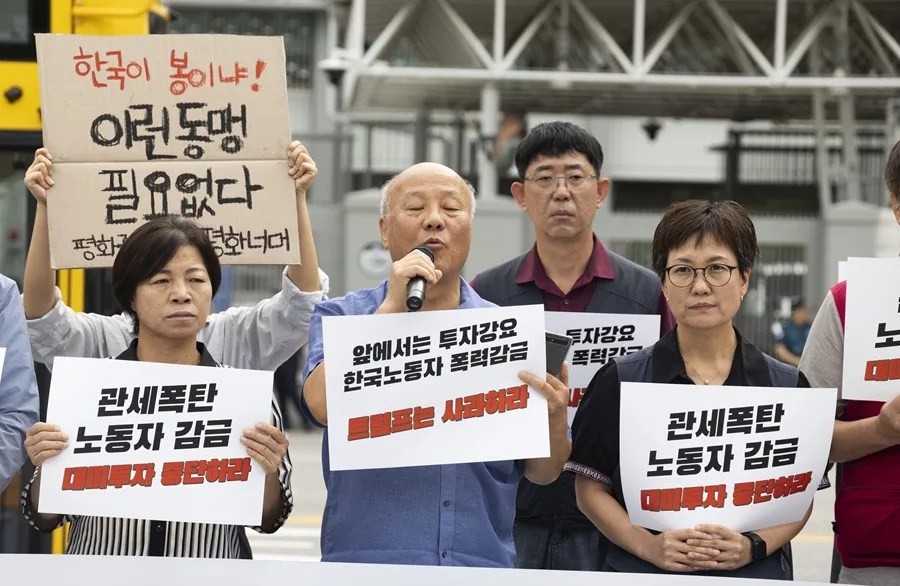US Immigration Raids on Korean Workers Expose Flaws in Visa Policies and Strain Allied Relations
The recent massive immigration raid targeting over 300 South Korean workers at a Hyundai-LG battery plant in the U.S. reveals flawed visa enforcement that harms American supply chains and sours allied partnerships.

Last week’s immigration crackdown on more than 300 South Korean employees at a major Hyundai Motor Group and LG Energy Solution battery plant shines a harsh spotlight on Washington’s failing visa policies and their unintended consequences for America’s strategic interests. These workers were detained primarily because they lacked valid work permits or carried visas inappropriate for their specialized roles, highlighting a systemic problem that goes beyond mere enforcement.
Are Ill-Designed Visa Rules Undermining American Competitiveness?
The detained technicians perform critical roles in cutting-edge battery manufacturing—a key sector vital to America’s economic future and energy independence. Yet, the outdated and rigid U.S. immigration system leaves companies scrambling to deploy skilled foreign talent legally. Instead of facilitating national prosperity by supporting sectors essential to electric vehicle production and semiconductor development, bureaucratic red tape stifles innovation and jeopardizes supply chains.
South Korea responded swiftly by dispatching a Boeing 747-8i capable of repatriating all detained workers in a single flight—an extraordinary measure reflecting Seoul’s unease with Washington’s heavy-handed approach. This incident has sparked public outrage in South Korea, where nearly 60% of citizens surveyed expressed profound disappointment with the Trump administration’s stringent enforcement tactics.
When Enforcement Becomes Counterproductive: National Sovereignty Demands Better Policies
While border security is paramount for any sovereign nation, effective governance requires balancing enforcement with pragmatic policies that bolster America’s industrial base rather than hamper it. The recent immigration raids threaten to undermine critical bilateral ties with an important ally at a moment when the U.S.-South Korea trade pact aims to foster cooperation in high-tech industries.
The Trump-era agreement called for substantial investments into batteries and semiconductors—areas where South Korean expertise is indispensable. How long can Washington afford policies that alienate partners whose technical skills advance American innovation? For families relying on well-paying manufacturing jobs tied indirectly to these industries, bureaucratic inflexibility only deepens economic uncertainty.
This episode serves as a cautionary tale: enforcing sovereignty without strategic foresight risks damaging alliances, slowing economic growth, and ceding technological leadership abroad. It underscores the urgent need for reforming visa frameworks to facilitate lawful work by qualified professionals who contribute directly to America’s competitiveness.
The question remains: will Washington recalibrate its approach before more damage is done? Or will short-sighted immigration enforcement continue to sabotage both national prosperity and global standing?
